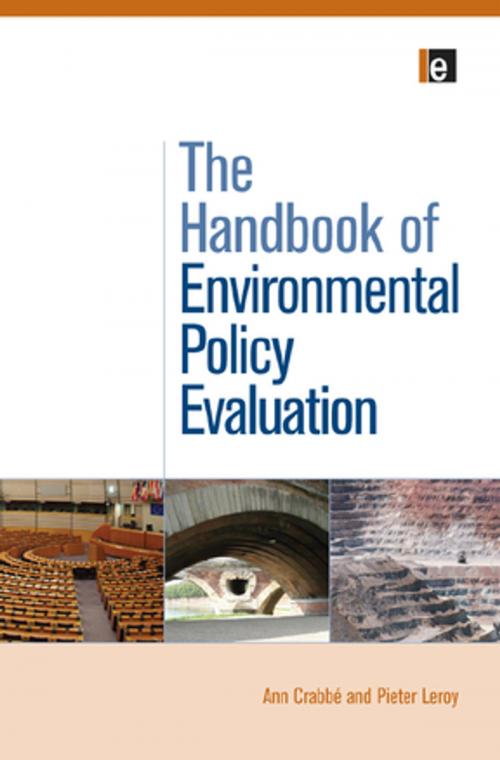The Handbook of Environmental Policy Evaluation
Business & Finance, Economics, Sustainable Development| Author: | Ann Crabb, Pieter Leroy | ISBN: | 9781136553561 |
| Publisher: | Taylor and Francis | Publication: | May 4, 2012 |
| Imprint: | Routledge | Language: | English |
| Author: | Ann Crabb, Pieter Leroy |
| ISBN: | 9781136553561 |
| Publisher: | Taylor and Francis |
| Publication: | May 4, 2012 |
| Imprint: | Routledge |
| Language: | English |
Policy evaluation is an important and well-established part of the policy process, facilitating and feeding back to promote the ongoing effectiveness of policies that have been implemented or anticipating policies in the making. Environmental policy is a special case, presenting new complexities uncommon to other areas, which standard evaluation tools are ill-equipped to grapple with. It is also an area that is experiencing rapid growth throughout the world and knowledge is now needed at all levels of government and in NGOs, businesses and other organizations, all of whom are required to assess the effectiveness of their policies. This handbook is the first guide to environmental policy evaluation in practice. Beginning with an introduction to the general principles of evaluation, it explains the particular complexities native to the environmental sphere and provides a comprehensive toolkit of evaluation methods and techniques which the practitioner can employ and refer to again and again. The authors also consider design issues which may face the policy evaluator, including involvement of stakeholders, the sensitivities between them, the a priori assessment of the evaluability of a field, the maximization of the utilization of the evaluations� outcomes, and much more. Throughout, the theory is illustrated with practical examples from around the world, making this the essential companion guide for anyone tasked with ensuring that environmental policy fulfils its aims and achieves its potential.
Policy evaluation is an important and well-established part of the policy process, facilitating and feeding back to promote the ongoing effectiveness of policies that have been implemented or anticipating policies in the making. Environmental policy is a special case, presenting new complexities uncommon to other areas, which standard evaluation tools are ill-equipped to grapple with. It is also an area that is experiencing rapid growth throughout the world and knowledge is now needed at all levels of government and in NGOs, businesses and other organizations, all of whom are required to assess the effectiveness of their policies. This handbook is the first guide to environmental policy evaluation in practice. Beginning with an introduction to the general principles of evaluation, it explains the particular complexities native to the environmental sphere and provides a comprehensive toolkit of evaluation methods and techniques which the practitioner can employ and refer to again and again. The authors also consider design issues which may face the policy evaluator, including involvement of stakeholders, the sensitivities between them, the a priori assessment of the evaluability of a field, the maximization of the utilization of the evaluations� outcomes, and much more. Throughout, the theory is illustrated with practical examples from around the world, making this the essential companion guide for anyone tasked with ensuring that environmental policy fulfils its aims and achieves its potential.















